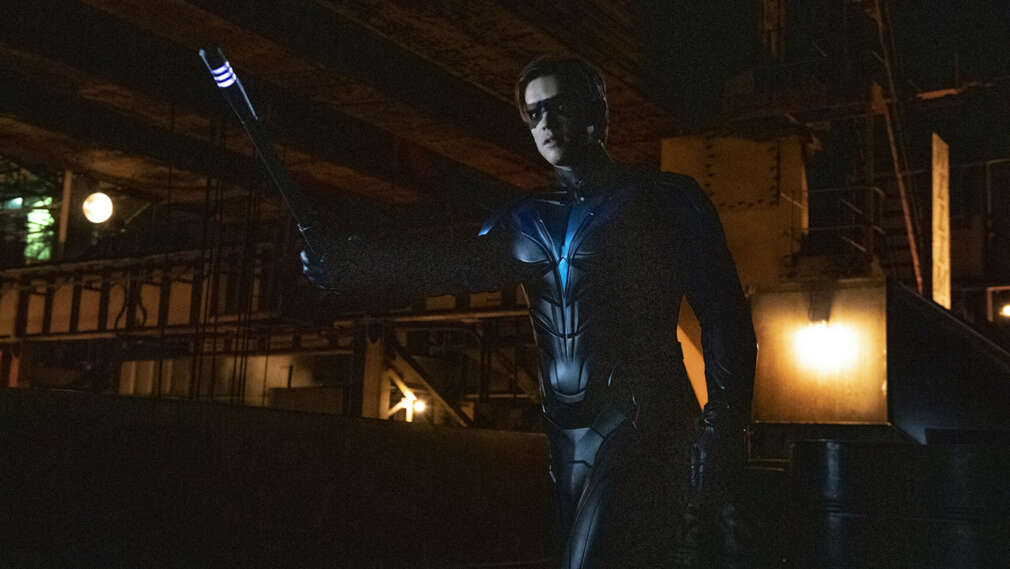Sometimes a film unexpectedly stays with you after viewing. This is usually down to the central themes or certain performances, but for me The Oak Room‘s simple premise about storytelling, expertly crafted through a non-linear structure and atmospheric cinematography, caught me by surprise. The crime thriller from Black Fawn Films originated as a stage play from Peter Genoway, and much like Bad Times at the El Royale & The Hateful Eight, revels in its locked room setting. This is Inception for storytelling – the story-within-a-story format heightens the suspense and suspicion, leaving you guessing throughout.
Directed by Cody Calahan, The Oak Room centres on wanderer Steve (Breaking Bad’s RJ Mitte) who returns home to retrieve his father’s ashes and settle an old debt. His unexpected arrival during a raging snowstorm provokes surly bartender Paul (Peter Outerbridge), as his previous employee attempts to repay him by telling a seemingly ordinary story. As the night draws on, events begin to unravel in an unexpected and unnerving way.

The establishing shot quickly hooks you in with a mysteriously cold opening; the closeup of a bottle of beer on a bar with a violent altercation occurring in the background instantly unnerves. Calahan immediately establishes the tone for the crime thriller, with a sense of dread and foreboding hanging over the rest of the proceedings. As Steve’s story of The Oak Room slowly unfolds, little pieces of the overarching mystery start assembling in a gripping tale of mistaken identities, suspicion and ulterior motives. Thematically, there’s a lot of exploration in the film too, particularly father son relationships and the power of stories.
The antagonistic relationship between Paul and Steve works excellently in gradually building up the suspense throughout the film, due to the nature of Paul controlling Steve’s delivery of the story. As the story progresses, their exchanges become ever tenser, digging into their complicated past and hostile feelings. However, the main mystery is abruptly stalled a number of times as Paul begins to tell his own tales, with the storytelling becoming a little convoluted at times. The slow burn nature begins to pay off once Steve takes control of the reins again, with the shocking events of The Oak Room growing to a violent crescendo. Viewers may have already guessed the final reveal during the film’s conclusion, but Genoway cleverly opts for a surprisingly understated twist.

The character and story driven narrative are impressively steered by the strong performances of its small cast. Outerbridge and Mitte particularly do a lot of the heavy lifting, with their captivating but complex dynamic making for a gripping watch in the intimate setting. Mitte’s persona and mannerisms intriguingly slowly evolves throughout the film, making for a particularly notable turn. Supporting actors Ari Millen and Nicholas Campbell also make for captivating watches, with the mysterious strangers standing off in the tense and claustrophobic setting.
Another big draw is the stunning cinematography, which exudes a dark and moody ambience. The two bar settings are perfectly lit; both are neon soaked and draped with shadows, conveying an eerie and unknown factor, particularly when the power unexpectedly cuts out. This, combined with the snowy blizzard and creepy string score accompaniment, makes for a truly immersive and atmospheric setting.
Verdict
Ambitious, suspenseful and truly atmospheric, The Oak Room is a slow-burn masterclass in storytelling.
Rating:



